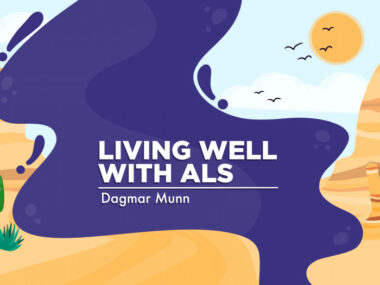Changes in speech with ALS to be monitored in planned Phase 1b trial
Study, expected to launch soon, will be first test of oral VRG50635 in patients
Written by |

A Phase 1b proof-of-concept clinical trial of the experimental oral therapy VRG50635 in people with amyotrophic lateral sclerosis (ALS) is expected to launch in the coming months, according to the therapy’s developer, Verge Genomics.
Verge also announced that the upcoming trial will use Modality.AI, a computer-based tool that performs automated assessments of language and speech patterns.
“Gradually deteriorating vocal communication is one of the major issues many people with ALS experience. It is, therefore, crucial for us to capture objective data to quantify changes in speech during therapeutic trials and explore how this data can be used to better understand the potential benefits of VRG50635,” Diego Cadavid, MD, Verge’s chief medical officer, said in a company press release.
ALS weakens muscles of mouth and throat, affecting speech
Clinical trials are the gold standard for testing potential disease treatments. One of the most important aspects to consider when designing these studies is determining their endpoints — that is, what measurements will be used to determine whether or not the experimental treatment is working.
“Endpoints used in ALS trials are often subjective, biased, and only limited objective biomarkers of neurological function are available,” said Anil Tarachandani, PhD, vice president and head of translational medicine at Verge.
ALS is characterized by the progressive death and dysfunction of motor neurons, the nerve cells that control voluntary movements. Degeneration of motor neurons impairs communication with muscles, leading to muscle weakness and atrophy (shrinkage). When muscles in the mouth and throat are affected, patients typically experience problems with speech, among the common symptoms of ALS.
Modality.AI uses a multimodal platform where a computer analyzes what patients say and how they say it. The platform doesn’t require a doctor or specialized equipment; it can be done using home devices like smartphones and laptops.
To analyze vocal recordings, Modality.AI uses machine learning, a branch of artificial intelligence, in which a computer is given a set of mathematical rules, called algorithms, alongside a heap of data. The computer uses the algorithms to “learn” from these data by detecting patterns, and patterns then be can applied to build models that help in understanding new data.
“There are several publications already on the ability of Modality’s platform to measure vocal communication in ALS. Using speech as an objective endpoint in ALS trials can provide evidence of the efficacy of potential therapeutic interventions, such as VRG50635,” Tarachandani said.
The platform “has been extensively used by the broader ALS community and can provide insights into ALS disease progression,” he added.
Trial in healthy adults supports VRG50635 tolerability and safety
VRG50635 is designed to block the activity of a protein called PIKfyve, which Verge identified as a potential treatment target in ALS using a machine learning analysis of biological data.
“At the core of both Verge Genomics and Modality.AI is the use of machine learning in combination with proprietary data sets to optimize drug development,” said David Suendermann-Oeft, PhD, founder and CEO of Modality.AI.
“While the Verge platform is designed to predict new drugs with a higher probability of clinical success, Modality.AI’s multimodal platform reduces inefficiencies in clinical trials of these new drugs, increasing the success probability … by delivering more accurate and comprehensive insights into how these drugs may benefit people with ALS,” he added.
Verge reported top-line data from a Phase 1 trial (ISRCTN14792372) of VRG50635 in healthy adults earlier this year. Results showed that the experimental treatment was generally well tolerated at varying doses and may be given once daily.
In addition to working with Modality.AI, Verge previously announced a collaboration with Emerald Innovations for the upcoming trial of VRG50635 in ALS patients.
Under this earlier collaboration, the trial will incorporate digital sensors made by Emerald in study participants’ homes, allowing continuous monitoring of breathing, sleeping, walking, and other aspects of daily life that are impacted by ALS.





